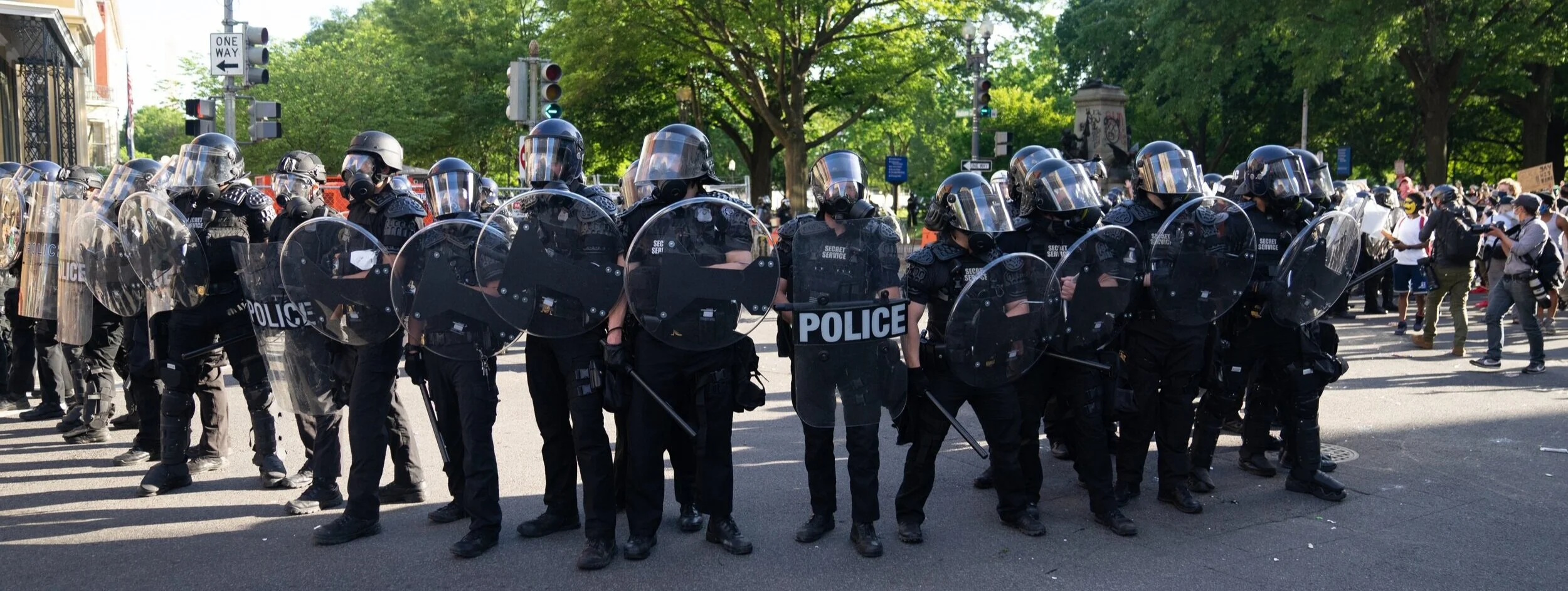America’s Recurring Failure
The massive tragedy of Rayshard Brooks’ death occurred in a time marked by police killings. The injustices unfolding in our country have been on my mind as I’ve been back home in Atlanta, interning with Equal Justice Under Law, and as a black person I’ve wondered what the act of violence that claimed his life means in the larger context of our long national problem with policing. 2014 was the first year in my memory as a 24-year-old that the issue of police violence took a truly “national” tilt, but growing up in a black household in America has made me aware that police officers are not the pillars of protection and service that conventional American tradition would have one believe. My mom taught me about the dangers of being perceived in a certain way, and when I got my driver’s license, she talked to me about how to react during a traffic stop. She emphasized not to make any sudden movements. Being black means being perceived as a threat. The fatal shootings of Michael Brown and Trayvon Martin are proof of this perception. For many people in the black community, these events awaken reactions similar to those awakened in others, but while many have expressed shock that these tragic killings could have happened at all, black people have wondered how they keep happening. Across the country and across the years, a terrible scene has repeatedly played out, wherein a black person is somehow perceived to be a threat that warrants lethal force, no matter how young, peaceful, polite, unarmed, or helpless they are. The sheer repetitiveness of these injustices and tragedies strikes deeply. Shortly after protesting for those who had lost their lives to police in the past few months, my family and I found ourselves sitting at home trying to come to terms with the news of another senseless killing - Rayshard Brooks. I have family and friends in Atlanta, so this killing struck especially close to home. Talking with a friend after hearing the news of Mr. Brooks’ death, my friend mentioned how when the initial news broke – that a black man had been shot late at night at a Wendy’s – they immediately questioned if their own father was safe and alive.
It is apparent that this country has a problem, deeper than perhaps any of us can adequately express. Research by the organization Mapping Police Violence has shown that, from 2013 to last year, annual killings by police have not substantially decreased, with 1,106 in 2013 and a five-year peak of 1,143 in 2018. This scale of violence takes place in a country where every state has an incarceration rate higher than nearly every country on Earth. The emotional outbursts and energy on display in protests are evidence that people have been witness to enough. Mr. Brooks’ death has undoubtedly rocked the city of Atlanta further, even as people had already been marching and speaking out prior to his killing. Deep tension and uncertainty have defined the days and weeks since his death, with the city’s highways blocked by protestors, former Atlanta police chief Erika Shields resigning in the wake of deep backlash, and many Atlanta police officers calling in sick in a suspected protest, or “sick-out,” of felony murder charges being filed against former officer Garrett Rolfe for his shooting of Rayshard Brooks. Georgia Governor Brian Kemp, for his part, has sent in as many as 1,000 National Guardsmen to protect certain buildings in Atlanta from apparent vandalism and unrest. This type of government response comes in the absence of any comparable response to address the COVID-19 pandemic’s threat in the state, an irony not lost on many.
Many, including myself, wonder what the future brings. Calls for prison reform and a serious rethinking of the role police play in American society have taken a larger share of attention compared to prior years. “Defund the police,” defined in many ways, but summarized in my own view as a movement to remove police and incarceration as the default answers to so many of our society’s problems, this movement has offered an alternative to the current strategy, which has brought upon far too much suffering on people across this country. Many interested observers are no doubt following how the Minneapolis City Council will carry out its own pledge to dismantle the city’s police department – with all the struggles that task will inevitably bring. As prison abolitionist and scholar Ruth Wilson Gilmore said of our country’s prison problem, “It didn’t have to turn out like this.” The same may be said of our national policing problem. We arrived at this current moment due to an array of forces and factors, but we can and must set about changing the current system.
In the midst of the ongoing pandemic, we’ve all seen how our government has failed to engender a comprehensive response, but we’ve also seen how communities and organizations across the country have stepped up. I have been inspired to see actions taken such as the creation of community bail funds and mutual relief funds. As people continuously look for ways in which we can serve and protect one another, organizations such as Equal Justice Under Law serve as an example of places determined to generate meaningful change in our legal system. Many of the issues facing our country are linked in important ways; this pandemic’s economic fallout has laid bare not only our country’s deficiencies in public health but in the ways that America fails to protect our most vulnerable. By fighting systemic policies like money bail and privatized probation, Equal Justice Under Law is fighting to create a more equitable and compassionate society that doesn’t punish the most vulnerable among us. I’m very grateful to get a chance to take part in this type of work, the type of work that drives lasting change in our country and in our justice system.

